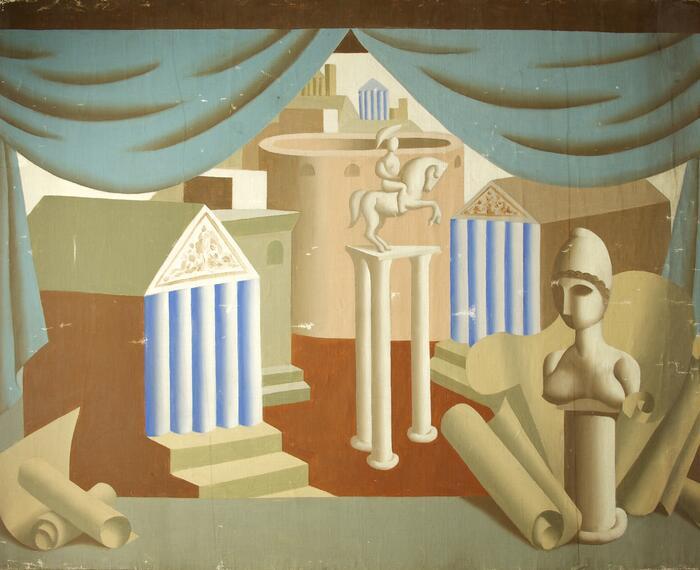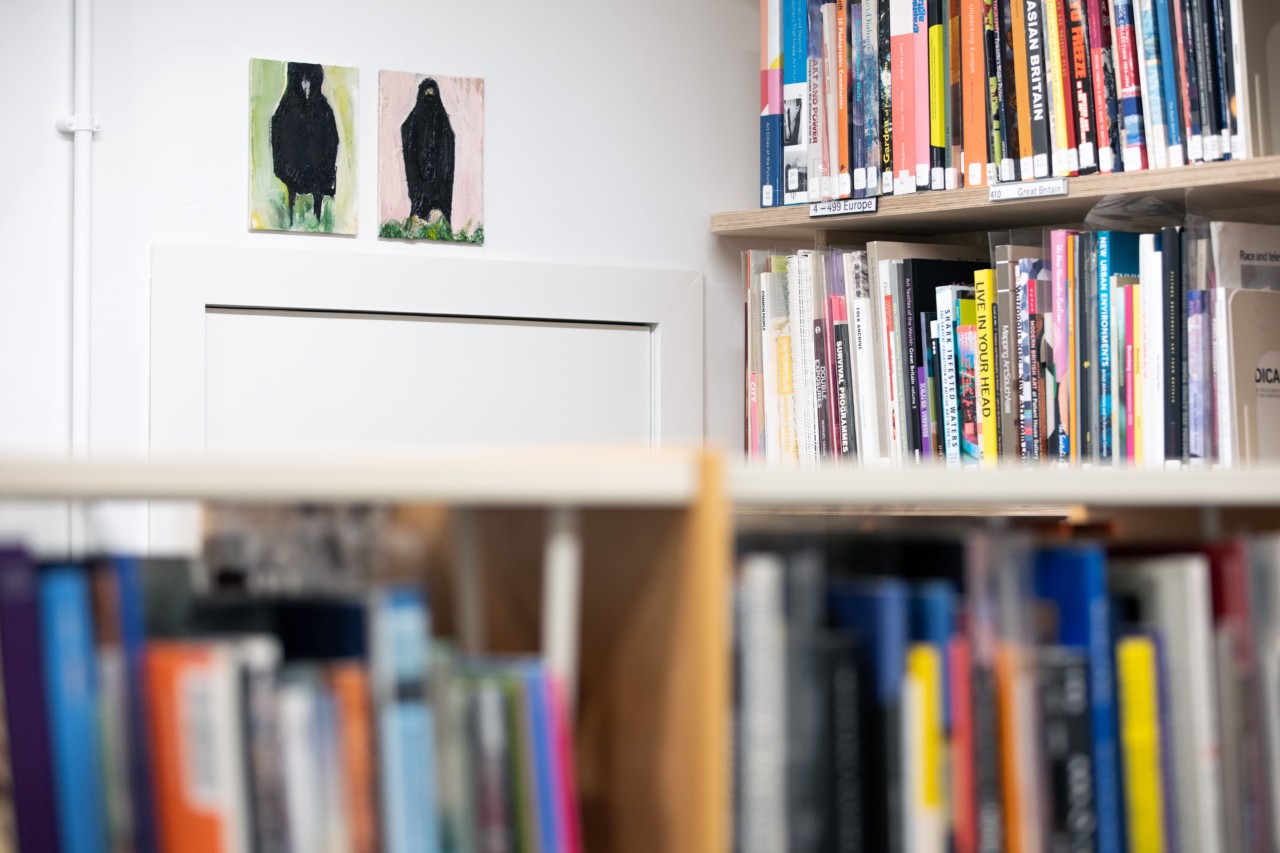


Matthew Krishanu, Corvus, 2019. Installation view. Photograph by George Torode.
Birds have arrived at Iniva’s Stuart Hall Library in Pimlico. Crows to be exact, 28 of them emerging between shelves, above the doors and alongside books; keeping us company with their uncanny presence when we look up from the lonely practice of studying.
These are from an ongoing series by Matthew Krishanu called Crow, which he begun in 2012 and was also seen earlier this year populating the gothic architecture of the Ikon Gallery in Birmingham, as well as in the show House of Crows at Matt’s Gallery in London.
Matthew Krishanu, who was born in the UK but emigrated to Dhaka in the 1980s, is known for his dreamlike paintings that frequently draw on memories of his childhood in Bangladesh, where his parents used to work for the church.
The whole Crow series currently consists of 60 intimate paintings of crows, rooks, jackdaws and ravens that the artist captures with a photograph first – always perched or walking, but never in flight. He then paints the bird singly with oil on canvas board. The crows appear in profile or up-front, some of them looking at us directly while others are gazing down or seem to be stepping away from us. The crow paintings are comprised of dense layers of different shades of black, dark blues and browns, set against pale washes of colour such as green and pink. The close cropping and thick texture of the paint gives the paintings an abstract quality, but when seen in a group the singularity of each crow stands out.
'There is something wild and untameable about crows’, is how the artist describes his fascination for these cosmopolitan creatures that inhabit nearly every country around the world. I was visiting Krishanu in his Walthamstow studio this week, where he explained that it was initially literature and visual art that inspired him to draw and paint the birds, drawing on references ranging from Ted Hughes’s poem collection Crow to Gaugin’s painting Nevermore (1897), which is in turn a reference to Edgar Allan Poe’s poem The Raven (1845). Mythical trickster tales of crows also appear in different cultures around the world. The crows he is depicting here are ‘London crows’, but they also take him back to his childhood in Bangladesh and India where, according to the artist, you would see and hear them everywhere.
Krishanu leaves it open to the viewer how to read or interpret the symbolic quality of the crow paintings. In the space of the Stuart Hall Library, systems of knowledge, classifications or taxonomy come into mind. Seeing this cast of distinguished magical birds in a library, a place in society that is considered a place of knowledge, seems to highlight the crow’s preternatural intelligence. Crows are considered to be amongst the smartest birds in the world. A study published in 2017 in the journal Science revealed that ravens can pre-plan tasks—a behaviour long believed unique to humans and their relatives – and that crows have an uncanny memory for human faces, meaning that they can remember if a particular person is a threat.
For me, seeing these magical birds in the protected space of a library’s collection inspires me to pay more respect to the knowledge that is inherent within the natural world that surrounds us.
Iniva’s Stuart Hall library is open to the public. They have a new space on the Chelsea College of Arts campus, having moved from Shoreditch last year, so this is an excellent chance to explore it and discover Matthew Krishanu’s distinguished crows.
Christine Takengny
Curator
Matthew Krishanu will be doing a talk about his series 'Corvus' at the Stuart Hall Library on 30 November 2019, click here for more information.
Stuart Hall Library, 16 John Islip Street, London SW1P 4JU. Open Tuesday-Friday 10.00-17.00, Saturday 10.00-16.00. Exhibition continues until 30 November 2019. www.iniva.org